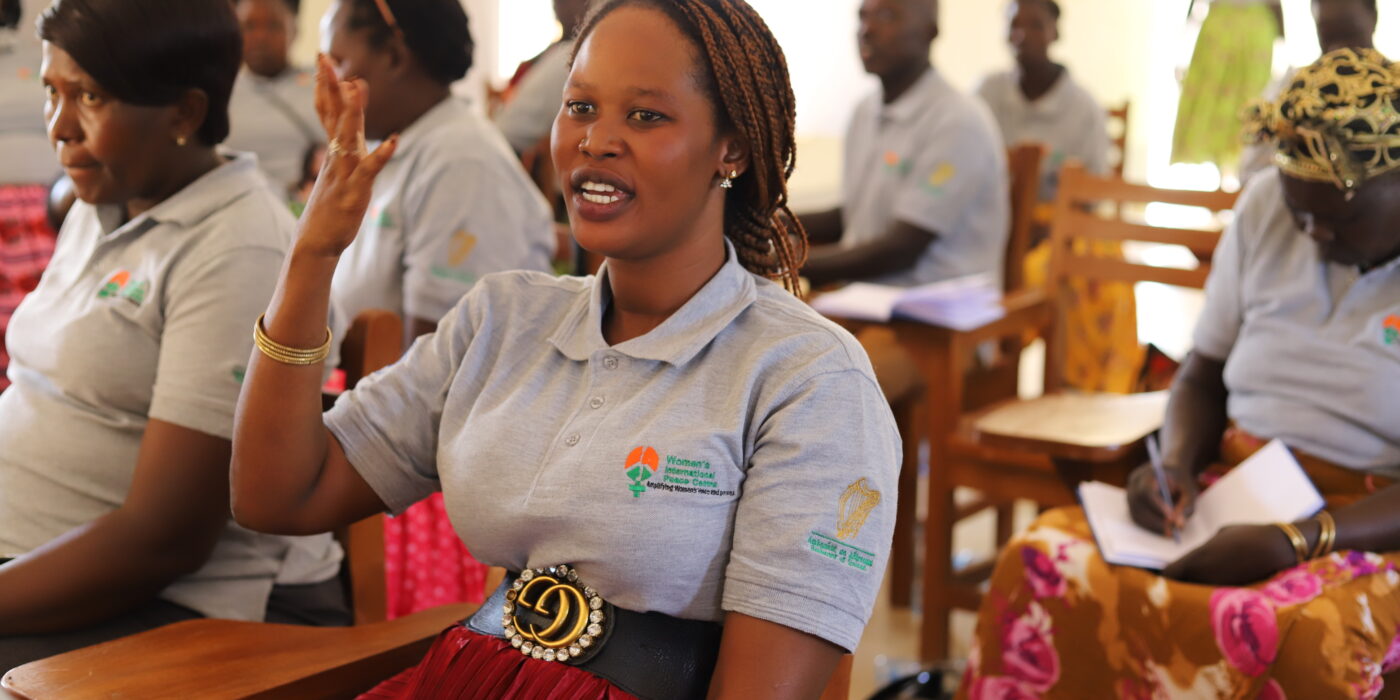Women’s International Peace Centre (The Peace Centre) and the Uganda Women’s Network (UWONET) with support from The Embassy of Ireland are partnering in an 8-month project “Women at the Centre of Sustaining Peace in Uganda” to promote the implementation of Uganda’s National Action Plan III (2021 – 2025) on Women, Peace and Security (WPS) at the national level and in Karamoja, particularly Kotido and Moroto districts.
From 11th to 13th and 19th to 20th May 2022, The Peace Centre in partnership with Uganda Women’s Network (UWONET) conducted trainings of peace mediators in Kotido and Moroto respectively. The trainings were carried out with the objective of enhancing peace mediators’ capacity with peacebuilding and conflict transformation skills such as mediation, negotiation, safety and security, wellness and advocacy so as to contribute effectively to peace.
In Kotido, 55 peace mediators (47 females and 8 males) from sub-counties of Rengen, Panyagara, Nakapelimolu and Kotido Municipality were trained whereas 51 (32 females and 19 males) from the sub-counties of Tapac, Loputuk/ Nadunget, Katitikekile and Moroto Municipality were trained in Moroto.
Sessions of the trainings focused on building an understanding of the NAP III while unpacking its background, relevance, pillars as well as its key components on Women, Peace and Security Agenda.
Discussions also highlighted the need for all respective actors to work together to support and invest in participatory processes, social accountability tools and localization initiatives in order to ensure the successful implementation of the NAP III.
Similarly, sessions unpacked the draft national peacebuilding and conflict transformation policy while exploring its development process, overall objective, relevance and rationale to the stakeholders.
As a result, the trainings increased knowledge among citizens and popularised the United Nations Security Council Resolution 1325, the Uganda National Action Plan (NAP) III on Women Peace and Security, the 2015 draft national Peace Building and Conflict Transformation Policy as well as enhanced peacebuilding skills among the peace mediators.
This has in turn increased women’s contribution to peace in Karamoja region through awareness sessions, dialogues, peer to peer lobbying as with the campaign towards the disarmament process.
At the end of the training, peace mediators generated community action plans to harness awareness and peacebuilding efforts at the community level. The action plans developed included; community meetings to review peace matters, awareness raising through music, dance & drama and to pass peace messages, conflict monitoring and reporting, peace dialogues, community outreaches for lobby among peers not to engage in conflicts, supporting the ongoing disarmament exercise and disseminating the NAP III to the political and technical planning teams.



